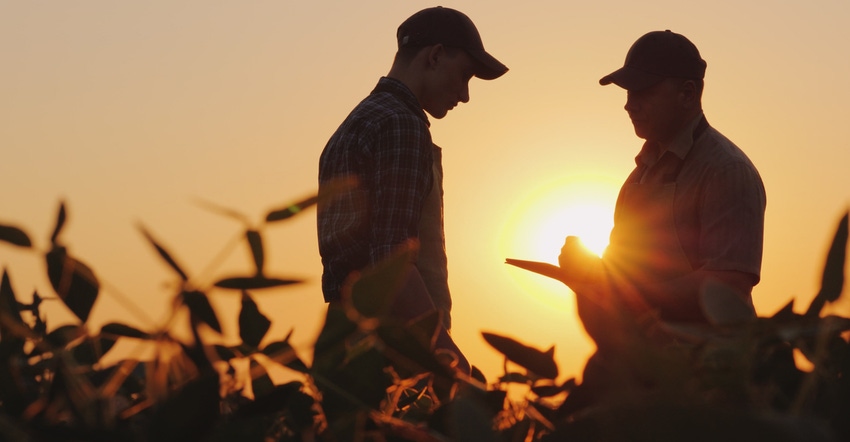December 29, 2021

My adult life has been spent telling stories, and the majority of that time has been spent telling agriculture’s stories to an agriculture audience. It has not been uncommon over that time to hear from my readers that my publication of the time needed to tell the story of the plight of the farmer, whether it be low prices, drought or livestock disease du jour.
My comeback has always been, we do tell those stories, but in working for an agricultural publication, I have been preaching to the choir for almost 30 years. Sure, anybody can check out one of the Farm Progress magazines websites and read what we have to say, but for the most part, our audience is you, the farmer who is living and breathing the good, bad and ugly of agriculture.
We can help tell your story to consumers, but you also need to tell your story. Consumers want to hear from you as the producers, not a large publication such as a Farm Progress. But how do you reach the American consumer as they are ever-changing and becoming further removed from an agrarian way of life?
It also can get more difficult as you have been told there are different ways to tell your story or to show what U.S. agriculture is all about. Simply going about your business of raising the most-abundant food supply in the world isn’t enough. That story needs to be told to the consumer, or maybe even more importantly, it needs to be told to those who are not, and maybe never will be, your consumers. This is particularly true for the livestock producers in our readership. You know well the pressures that are mounting against raising livestock, especially for consumption.
We’ve heard “club them over the head with science,” because that is black and white. But then they get blinded by that science.
So we divert away from science and tell them our stories. Even better, a little bit of science (in the form of technology) allows producers to virtually open up their barns and feedyards to consumers and non-consumers alike. Remove the curtain that hides Oz to show them there is no wizard, just great livestock producers.
Regardless how producers tell or share their stories, there will always be people who want more.
Sometimes it is best to lead by example and to simply have conversations. Most people would rather be spoken with than spoken to.
Sow common ground
If you spend time on social media, you know there is a vocal population that is anti-animal agriculture. But there is also a large stable of farmers who are doing a great job of telling the real story of agriculture. They are willing not only to tell the real story of agriculture, but also to engage with detractors, should the opportunity present itself.
As the old saying goes, “You can catch more flies with honey than with vinegar,” If you do have the opportunity to engage detractors, do not splash them with vinegar. We have been told, that for the most part, people just want to know what farmers do and why they do it. Sadly, they have received this (mis)information from a distant public, and continue to simply repeat what they have heard from third-party supposed “experts.”
Once you open dialogue with someone on the other side of the fence, find out what they think they know, without poking holes in that logic. Then calmly and plainly tell them your side of the story. Spread the honey. Tell them that you care about the environment and you care about the livestock under your watch. Tell them that you want to be able to put healthy food on the table for your family, the same as they do.
Telling consumers how and why you farm the way you do will only go so far. But if you show them how and why you do what you do, you may find that information gap is being bridged between being misinformed and finding common ground.
With that groundwork laid, both parties should realize that you are more alike than either of you ever imagined.
You May Also Like




